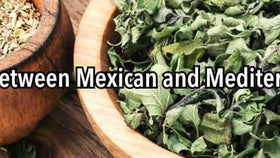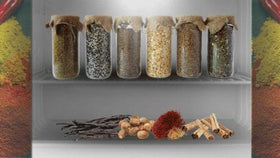Do Morel Mushrooms Taste Good?
Whether or not morel mushrooms taste good is clearly dependent on an individual's taste preferences. We think they are divine, as do most restauranteurs and chefs around the world. Morchellas, or morel mushrooms, are coveted by culinary enthusiasts and foragers alike. Adored for their unmatched flavor and meaty bite, these elusive mushrooms are highly sought after and their seasonal nature further inflates their desirability. But if you are a morel novice, you might be wondering if the flavor is really worth all of the fuss. In this article, we'll explore the unique flavor profile of morels, so you can prepare yourself for utilizing them in your recipes.
Flavor Profile of Morel Mushrooms
Ask 30 different morel enthusiasts about the flavor profile of morel mushrooms and you will be likely to get 30 different answers. Most folks will throw out a long list of seemingly undesirable flavor attributes that might leave you wondering why these mushrooms are in such high demand. It’s likely because these flavors come together to create an intense and exotic mushroom flavor that supersedes any more common mushroom, and that complements a variety of upscale dishes like flavorful risottos, pastas with decadent cream sauces, and high-end steaks with herb butters and demi-glaces.
Let’s take a deeper look at the most common morel mushroom flavor descriptors.
Morel Mushrooms are Earthy
Most folks, at the very least, throw out the term, “earthy”, when describing morels. But what exactly does that mean? Beets and coffee are also frequently described as earthy, but the three taste entirely different. When we think of the flavor of earth, it’s important to mentally engage another of our senses, the sense of smell.
You probably don’t know many folks who want a mouth full of dirt, but most adore the petrichor that emanates from the ground after brief rainfall, the scent of a wooded forest, or the smell of minerals wafting into the air as we dig in the garden. Now, imagine what those smells would taste like without the grit and grime you might experience had you taken a mouthful of dirt or bark. Well, that’s what is meant by “earthy”. Quality morels will have only recently surfaced from the earth, so its understandable that their experienced flavor is reminiscent of such..
Morel Mushrooms are Often Described as Musty
An additional term commonly used to describe the flavor of morchellas is, “musty”—another descriptor that doesn’t sound particularly pleasant. When we think of things that are musty, we might conjure images of poorly ventilated bathrooms with mildew in the corners, marshes with algae blooms, underground root cellars, or fermentation rooms for making beer. In most instances, “musty” would be used describe food that might be past its prime. When it comes to mushrooms, though, that particular flavor component is often craved. A faint mustiness cuts through flavors of other ingredients in dishes, adding a savory—almost leathery—flavor with each bite of mushroom.
Morel Mushrooms Come Across as Being Nutty
Among the diverse flavor descriptors for morel mushrooms, "nutty" often finds its way into the conversation. Now, you might be wondering how a mushroom can taste nutty, but it's a characteristic that distinguishes morels and a few other choice varieties of mushrooms from many other types of fungi.
When we say morels are "nutty," we're not implying that they taste like roasted almonds or cashews. Instead, it's more about the rich and deep undertones that evoke a sense of nuttiness. Think of the way walnuts or hazelnuts offer a complexity of flavors beyond just a simple crunch. It's a similar notion with morels; their taste encompasses a subtle nuttiness that adds depth to dishes and elevates their overall flavor profile The nutty quality that resonates in every bite is one of the reasons morels are prized in upscale culinary creations. It complements dishes like creamy risottos, where the earthy, musty, and nutty notes blend harmoniously with the starches and seasonings to create an exquisite gastronomic experience.
Bringing Out the Flavor of Morels When Cooking
It’s important to note, whether using freshly-sourced or dehydrated versions, that morel mushrooms should be cooked thoroughly before consuming them. Not only will it help bring out the desirable flavors, but it is essential in removing a toxin that can cause serious gastrointestinal cramping. During the cooking process, the layers of flavors in the morels will develop, creating a rich, complex umami taste that can elevate any dish.
To get the biggest flavors out of your mushrooms, here are some tips to consider:
- Clean your mushrooms by gently brushing them off with a paper towel or soft bristled (clean) paint brush
- When using dehydrated mushrooms, rehydrate and reserve the flavor-infused broth for using in cooking.
- Pair with herbs and spices like garlic, thyme, and sage for an exquisite flavor combination.
- Don’t overcook them to avoid tainting their flavor or textural properties.
- Sauté in butter or high-quality oil for a rich, indulgent flavor.










Slofoodgroup
Author